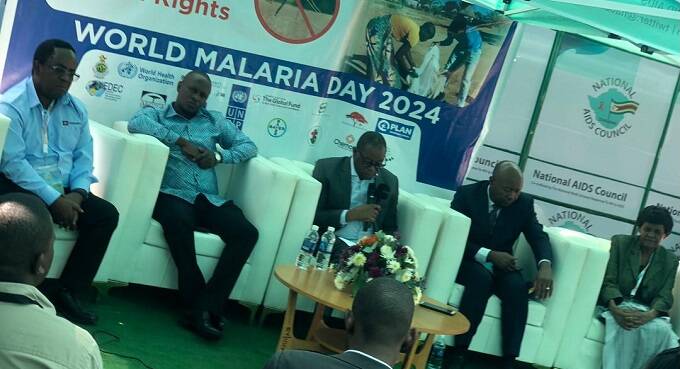
The Sunday News

Robin Muchetu, Senior Reporter
ZIMBABWE continues to make strides in reducing malaria deaths and ending the disease through various preventative measures with 29 deaths recorded in 2024 so far as compared to 92 last year.
This was revealed during the World Malaria Day commemorations that were held in Bulawayo on the sidelines of the Zimbabwe International Trade Fair (ZITF). The commemorations ran under the theme ‘Health Equity, Gender and Human Rights’.
World Malaria Day is commemorated annually on 25 March across the world to recognise efforts in various countries to eliminate the disease and to also offer solutions to end the disease in areas where it is endemic.
“This year the country has reported 15422 cases and 29 malaria deaths, a decrease from 47685 and 92 malaria deaths reported last year. The country reached a malaria incidence of 16/1000 surpassing its target of 21/1000. However, there was an increase in cases in 2023, compared to 2022.
“The increase in cases has been attributed to population movement for economic activities among other reasons. The Ministry has been working with provinces and district level team to address risk factors in the wards that reported outbreaks,” said Minister of Health and Child Care Dr Douglas Mombeshora during the commemorations.
The Minister said this year’s theme serves to raise awareness of the fight against malaria for those most affected by the disease including populations living in malaria-endemic areas and vulnerable populations such as children under five, pregnant women, the elderly, and the mobile populations.
He said it also draws the nation’s attention to the many challenges faced by communities in malaria-endemic settings, such as access to health services and the emerging threats posed by climate change.
Zimbabwe uses the World Health Organisation (WHO) recommended malaria prevention, control, and elimination strategies.
The strategies include indoor residual spraying (IRS) and the use of insecticide-treated nets (ITNs), prevention of malaria in pregnancy, use of efficacious medicines to treat malaria, advocacy, community engagement, and epidemic preparedness and response.
Dr Mombeshora said Malaria prevention and control strategies are accessed for free in Zimbabwe regardless of socio-economic status.
“These include malaria testing and treatment, intermittent preventative treatment in pregnancy (IPTP), insecticide-treated nets, and indoor residual spraying. The Ministry of Health and Child Care has a strong community health system and trained Community Health Workers to test and treat malaria thereby improving access in hard-to-reach areas. In 2023, 58 percent of malaria cases were treated by Community Health Workers,” he said.
The country continues to maintain a universal coverage approach for all interventions.
“Door-to-door approach is used for Indoor Residual Spraying and ITN distribution to ensure no one is left behind in all targeted districts. With this approach in 2023, 1,943,547 (91 percent) rooms were sprayed and 2,694,692 (91.4 percent) of the population at risk was protected, and 918,911 nets distributed,” added Dr Mombeshora.
The Ministry highlighted that 31 out of 63 rural districts are implementing elimination activities. Last year seven districts Bulawayo, Chikomba, Chirumanzu, Shurugwi, Zvishavane, Umguza and Umzingwane reported no local cases.
@NyembeziMu



